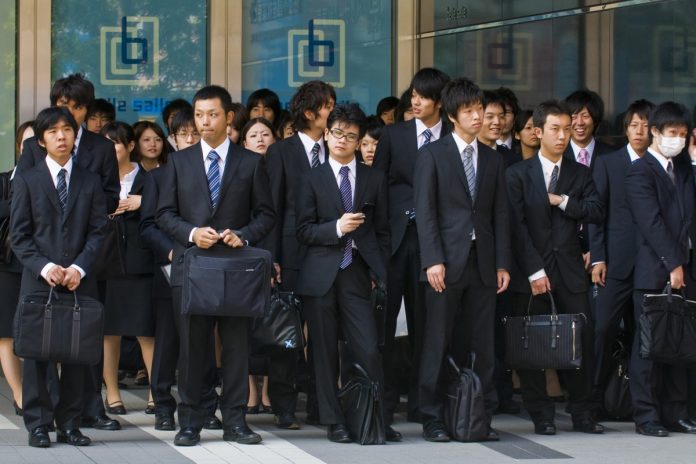Businesses in Japan’s private sector now have to hire more workers with disabilities. The government is raising the mandatory employment rate for disabled workers in two phases – from 2.3 per cent to 2.5 per cent last month, and to 2.7 per cent in July 2026. The exact figure varies depending on the size of a company, but firms that do not meet the targets can be fined. If a company fails to do so, the penalty is ¥50,000 monthly per person below the quota.
Mr Yamashita was introduced to his current employer Omron through an agent. The electronics company has been employing workers with physical impairments for decades. Omron only started hiring staff with mental disabilities in 2018, after government requirements covering their employment came into effect. “We did not have the experience. We decided to study what kind of tendencies people with such disabilities have, and what kinds of jobs are possible,” said Ms Chie Uemura, diversity promotion section manager at Omron. “Software development was something suggested by other companies that hired people with developmental disorders. We began looking into that for our company.” Mr Hiroshi Yamashita, 37, started his first full-time job at Japanese electronics maker Omron only a year ago. The software developer was in university when he developed social anxiety disorder and mood swings. Ms Uemura hired Mr Yamashita as an intern in 2021. Two years later, he was given a full-time position. His supervisor Koji Nakamura, an application group manager, said he is a hard worker who studies up on his work responsibilities even after office hours. “Just recently, he went as far as to get certified,” Mr Nakamura added. The company now has around 260 staff with disabilities, including 20 with mental conditions.
While businesses such as Omron can receive government subsidies for hiring and training disabled workers, Japan’s progress in creating inclusive workplaces has been slow, said observers. The private sector, on average, has not reached the target set by the government. Concerns include uncertainty over what people with disabilities can do, unsuitable facilities for their needs, and hesitancy among the other employees in welcoming them.
Ms Cai Cai, chief of the Gender Equality and Social Inclusion Section at the United Nations Economic and Social Commission for Asia and the Pacific (UNESCAP), believes it is essential for business leaders to adopt a mindset shift. If these individuals are given the right support, they could be just as productive and contribute to society, Ms Cai told CNA’s East Asia Tonight. “We have noticed many of them are very talented in areas such as information and communications technology, and art, and they function very well as research managers. So it’s essential to tap into these talents by companies,” she said.
While businesses can receive government subsidies for hiring and training disabled workers, Japan’s progress in creating inclusive workplaces has been slow, say observers. Economist Takanobu Nakajima, who has a son with disabilities, said the situation is changing. “In the past, a sense of shame existed towards disabilities. Those with disabilities were locked up in their homes. That discriminatory perception is almost gone today,” said Professor Nakajima of Keio University’s business and commerce faculty. “If someone has an intellectual or developmental disorder, he or she is no longer stared at and seen as out of place.” Prof Nakajima said firms can benefit from hiring these workers, as those with developmental or mental disorders “tend to have the ability to concentrate”. “Depending on the job, they can be useful, but companies will also have to be creative to provide a position where they can perform,” he added.
CNA




















